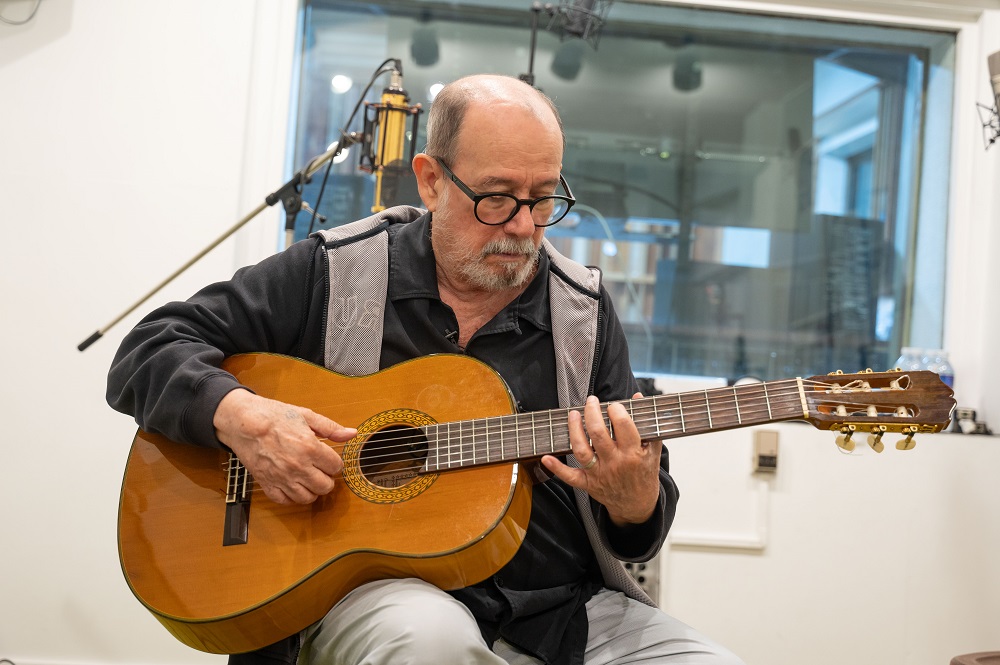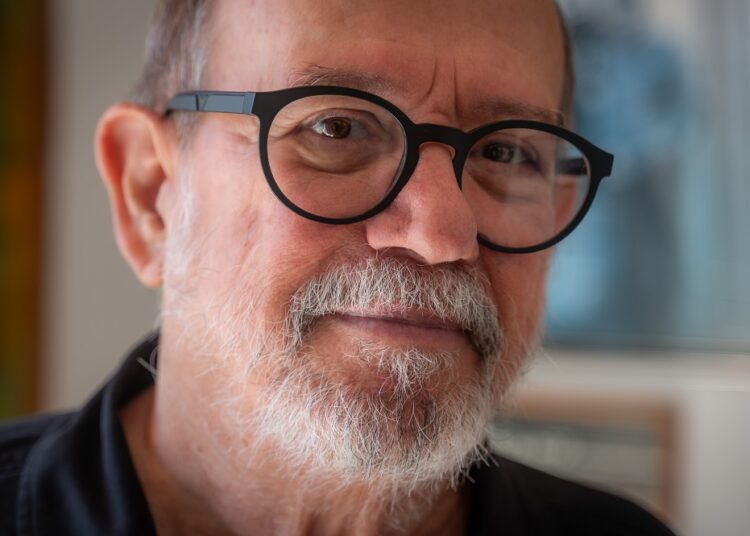Silvio Rodríguez made it clear this Wednesday that he does not regret the stand and words he has upheld throughout his life while defending the importance of “evolving” without leaving aside principles.
“Those opposed to the political process that has been called the Cuban Revolution say that I’m changing as if it were possible to regret my life,” said the 77-year-old Cuban singer-songwriter in a statement published on his blog Segunda Cita, in which he noted that “seeing the world and learning does not mean ceasing to be supportive or abandoning the desire for social justice.”
“Being alive without evolving is absurd,” said the man who years ago added a subtitle to the title of his digital space: “blog in evolution,” and also mentions the subject in “Sea señora,” when he calls for overcoming the r in revolution.
In his text, titled “Solo así” (“Only this way do I feel that I honor the sacrifice of my people,” he expands at the end), Silvio responds to “some media” that have recently reproduced his opinions on Cuban reality and “dare to insinuate that I’m changing my principles,” something he considered “pure manipulation.”
“Those who have followed the course of my work, those who have read my blog — and above all those who know me — know that I have always sung and said what I think,” wrote the singer-songwriter, one of the essential figures of the new Cuban Song Movement and Spanish-language songs worldwide.
Segunda Cita was created by Silvio Rodríguez in 2010, taking the name of the album he released that same year. Since then, the space has hosted numerous cultural, artistic, and political debates for more than a decade.
“The only song that I once described as uncomfortable is ‘Cuando digo futuro’, even though I made it on request, for cinema. And it’s not that I regret what I said but because I live in a very different future than the one I invited then.”

Silvio was about 26 years old when he wrote it, and he assumed “that after fifty years the future was going to be different. I was very convinced when I said it, it is a very sincere song in that sense,” he told OnCuba in 2020.
“Not only the future of Cubans but that of the world. In the 1960s and 1970s, it seemed that what was coming was going to be something else. There was a Third World that was searching, and it seemed that we would arrive at a place where there would be less prejudice, less war, that resources would be used for more noble things. How many wars have we been through in the last fifty years? How much has been spent on weapons and devices to destroy people?” he then expanded.
On the other hand, about a phrase he said about “Pequeña serenata diurna” and quoted by the AP news agency in a recent interview — repeated by other media and on social media — he said that “it was taken out of context and the clarification that I purposely made was omitted.”
“The Revolution was not taught to me by others”
In his statement, Silvio confirmed his commitment to socialism as a sociopolitical system and affirmed that he did not learn about the Revolution from others, but rather that he lived it.
“I didn’t read it nor was it taught to me by others. I lived it since I was a child, when everyone on my street knew that the bakery sold July 26 bonds and if we saw a policeman coming we would go and warn the baker,” he narrated.
The singer-songwriter, who recently released his 22nd album, Quiero saber, recalled episodes of his life such as his time as a literacy teacher, a militiaman and, years later, as a deputy to the National Assembly, even though he did not have, he said, “a vocation for politics.”
Photograph provided by Silvio Rodríguez’s office showing the singer-songwriter with his group. Photo: EFE/Daniel Mordzinski/Silvio Rodríguez’s Office.
“I was never a Party member because it is difficult for me to accept without discussion what others come up with, but when I agree, not even the fear of death has been able to keep me from what I consider my duty. My two tours of Angola, in 1976, prove it,” he said.
After saying that he requested retirement at the age of 60 “because I never put up with bureaucracy,” he summarized what he did later, in particular his tours of prisons and neighborhoods in Cuba for ten years.
“The pandemic stopped us. In the subsequent economic situation, I consider that continuing would create more problems than it would solve,” he said, while estimating that in his 17 years as a retiree he has worked “as much or more than before.”
“I’m the same”
Silvio Rodríguez at the entrance of the Ojalá Studios. Havana, 2024. Photo: Kaloian.
Towards the end of his statement, the composer reiterated that he is essentially still the same person as always.
“As I said recently in an unpublished interview, essentially ‘I think I am the same: social justice without egalitarianism, science as a guide and a self-critical heart,’” he commented.
This, however, is not at odds in his opinion with a necessary evolution, because, he said, “the Universe does not stop moving.”
Even so, he said that he continues working “for a more just world, where instead of investing in weapons, we invest in opportunities for everyone who is born.”
“I continue to think that socialism has better human possibilities than capitalism; but it will have to be a truly superior socialism, as has been said and sung so much, even if we must use ‘blunted tools’ while we are not capable of a better energy,” he said.
His declaration of principles closes with three symbolic and lapidary phrases: “Down with dogmas,” “Long live freedom” and the Martí’s “With all and for the good of all.”
Silvio’s text saw the light a few days after his other words, published as a comment on another publication on his blog, were amplified on social and independent media.
In them, the singer-songwriter pointed out that “the little snakes of 1974 are today horrendous monsters,” about his song “Sueño con serpientes,” composed in 1974 and included in his first album, Días y flores (1975).
“There are so many bureaucratic obstacles that I know have been suffered by several potential investors who have given up on carrying out projects because of the delays imposed by the government apparatus,” he said when commenting on an opinion by professor and economist Juan Triana on Segunda Cita.
“As Fidel said several times: only we ourselves can destroy this. It is sad to see it, but I think that is what is happening. If we do not quickly dismantle what is holding us back, we will be swallowed up by our own creations. They are already chewing us up. Let’s wake up,” he concluded.










